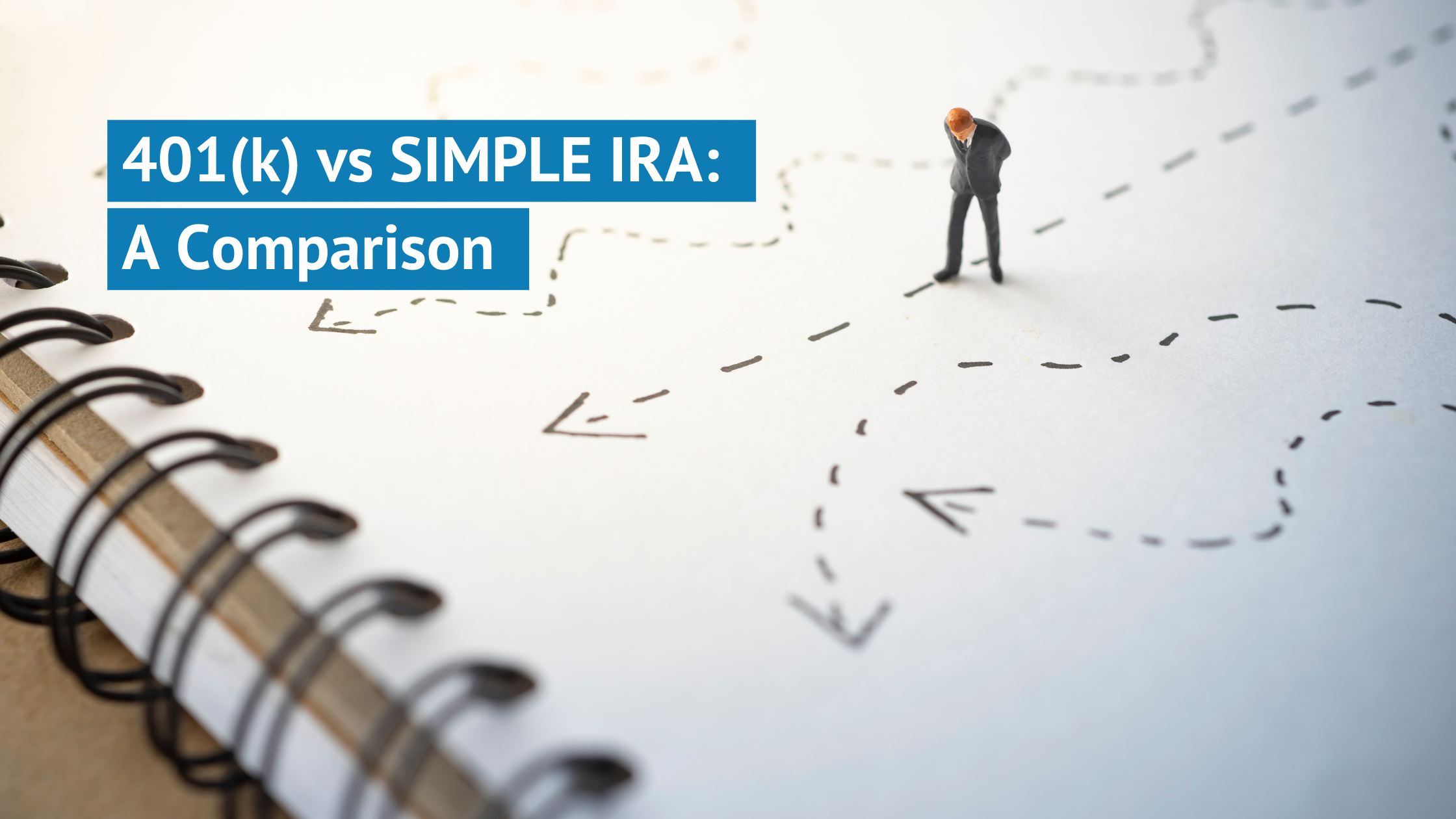Top 3 Employer Fiduciary Responsibilities for 401(k) Plans
June 26, 2023|Luke Matchett

Bottom Line Up Front
- An employer fiduciary is responsible for acting in the best interest of the 401(k) plan’s participants and beneficiaries, ensuring compliance with the Employee Retirement Income Security Act (ERISA) which sets the guidelines and regulations that employers must follow to fulfill their duties.
- The three key responsibilities of an employer fiduciary encompass carrying out administrative tasks, keeping 401(k) provider fees in check, and providing diversified quality investment opportunities.
If you’re a small business owner considering the implementation of a 401(k) plan for your business, it’s important to understand your responsibilities as a plan fiduciary, including compliance with the Employee Retirement Income Security Act (ERISA). As an employer fiduciary, your primary duty is to act in the best interest of the plan’s participants and beneficiaries, ensuring their well-being. This entails not only maximizing returns for the participants, but also adhering to ERISA compliance guidelines. While there are various fiduciary responsibilities, this article focuses on three key obligations that are essential for any small business owner venturing into the realm of 401(k) plans.
Carry Out Administrative Tasks in a Timely Manner
There are numerous administrative tasks that are the responsibility of the employer fiduciary. One of the most crucial responsibilities is operating the 401(k) plan in accordance with the plan document. This includes ensuring deposits are made correctly and on time, as well as making sure any distributions are made in a timely fashion. Adhering to the plan document helps maintain consistency and ensure compliance with ERISA regulations.
Another important duty of the employer fiduciary is to keep track of employee eligibility and ensure that contributions are made once the employee becomes eligible to participate in the plan. It’s crucial to monitor eligibility criteria and notify employees of their eligibility (unless you have established automatic enrollment) to provide them with the opportunity to save for retirement.
The fiduciary must also make sure to maintain records in accordance with ERISA standards. Proper record-keeping is vital for demonstrating compliance with fiduciary responsibilities and providing transparency. It also helps come audit time.
Furthermore, you are also responsible for conducting any necessary plan testing, such as discrimination testing – this is normally outsourced to a firm like a Third Party Administrator (“TPA”). These tests are designed to ensure that the plan does not unfairly favor highly compensated employees over non-highly compensated employees.
For detailed information on ERISA standards and regulations related to these administrative responsibilities, you can refer to the Department of Labor (DOL) website, which provides comprehensive guidance on ERISA compliance: Department of Labor – ERISA Compliance.
Keep 401(k) Fees in Check
I’m sure you’ve heard this before, especially since it’s been such a hot topic recently. It’s important to make sure you understand, monitor, and disclose your 401(k) plan fees. As a plan sponsor, you have the authority over plan assets meaning you decide which funds will be allowed or offered in the plan. You are expected to understand the fees that your 401(k) participants will incur based on their decisions. It’s important to weigh the benefits and the costs – your provider may offer many additional services and that may be desirable even at a higher cost. Fiduciaries can:
- Determine the current costs being paid and to whom and request itemized documentation
- Compare fees charged by different providers
There are three different fees associated with a 401(k) plan which are administrative, investment, and consulting fees. By carefully monitoring and evaluating the fees, you can safeguard the long-term financial well-being of your plan participants.
Provide Diverse and Quality Investment Opportunities
To ensure compliance with ERISA 404(c) and fulfill your fiduciary duties, employer fiduciaries are responsible for offering a diverse selection of quality investment options. These requirements are not too difficult to meet. One potential option for fulfilling these requirements is considering index funds, which offer a broad range of investment opportunities for plan participants. By including index funds among the investment options, you can provide participants with the chance to create a well-diversified portfolio that aligns with ERISA guidelines. Further, you’ll want to monitor the investment offerings to ensure that they are measuring up to their peers.
To Wrap It Up
A fiduciary has many responsibilities in regards to a 401(k) plan. However at the root of all responsibilities is to act in the sole interest of the plan’s participants and beneficiaries. Employer fiduciaries must handle plan administration, try to limit fees, and offer diversified investment options in order to give the plan participants every opportunity to maximize their investment returns. Employer fiduciaries must be sure to follow all rules and regulations set forward by ERISA.
Although these responsibilities may seem daunting, there are experts in the field who will gladly help. Take the worry out of retirement plan administration and let Odyssey Advisors be your trusted partner in building and managing your company’s retirement plan. Our expert team will handle the complex responsibilities, so you can focus on what you do best. Say hello to peace of mind and contact us today!

About The Author Luke graduated from the University of Connecticut with a B.A. in Actuarial Science. He brings a strong mathematical and analytical background to his role as a Consulting Actuary at Odyssey Advisors. He designs and maintains complex client-employee benefit programs...
More Insights From This author

April 6, 2023
Luke Matchett





